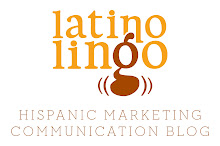Massachusetts Connector not connecting with Latinos?
July 1 marks the deadline for nearly every adult in Massachusetts to obtain health insurance. Officially called the Health Care Reform, the "Connector," as it's called, has the obvious goal of reducing the number of people in the state who have no health insurance. Before the Reform, there were nearly 500,000 people without insurance, according to their website.
Yet, until a minute ago when I checked, they still don't have any information available in Spanish on the website. I contacted them a few weeks ago and they said something was in the works. I made a "test" call to their 800# to see what would happen. I prompted to the Spanish options, which resulted in frustration and being bounced around until I finally reached someone who spoke Spanish.
According to a 2006 Mass Health and Human Services release, the Black uninsured rate for Hispanics was 12.8 percent, compared to 5.1 percent for whites.
To me, it seems like communication to Hispanics was an after thought. Like a light in someone's head came on and said "holy cow, we need info in Spanish," rather than making outreach to Hispanics core in its outreach plans. My hunch is a translation service is frantically trying to finish the job.
Readers of my blog know about the challenges of health communication to Hispanics. So, I hope I'm proven wrong that outreach to Hispanics was an after thought and that they are being culturally relevant in their communication v. just translating.
Yet, until a minute ago when I checked, they still don't have any information available in Spanish on the website. I contacted them a few weeks ago and they said something was in the works. I made a "test" call to their 800# to see what would happen. I prompted to the Spanish options, which resulted in frustration and being bounced around until I finally reached someone who spoke Spanish.
According to a 2006 Mass Health and Human Services release, the Black uninsured rate for Hispanics was 12.8 percent, compared to 5.1 percent for whites.
To me, it seems like communication to Hispanics was an after thought. Like a light in someone's head came on and said "holy cow, we need info in Spanish," rather than making outreach to Hispanics core in its outreach plans. My hunch is a translation service is frantically trying to finish the job.
Readers of my blog know about the challenges of health communication to Hispanics. So, I hope I'm proven wrong that outreach to Hispanics was an after thought and that they are being culturally relevant in their communication v. just translating.

